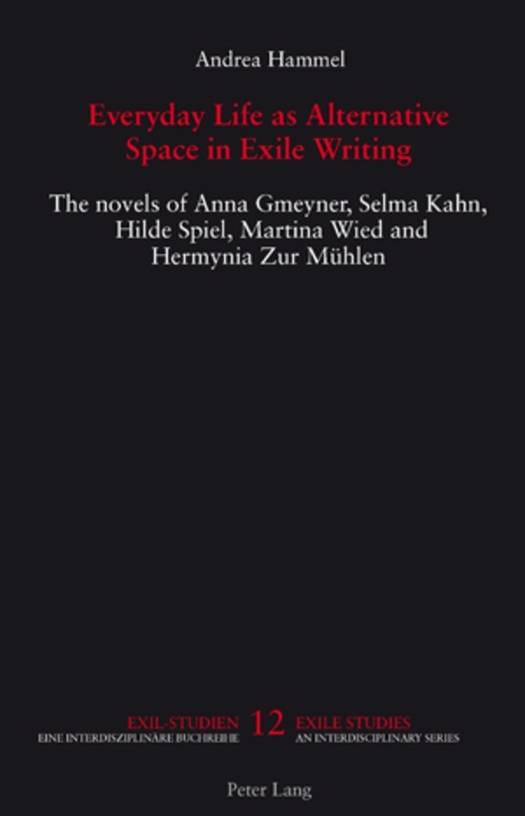
Door een staking bij bpost kan je online bestelling op dit moment iets langer onderweg zijn dan voorzien. Dringend iets nodig? Onze winkels ontvangen jou met open armen!
- Afhalen na 1 uur in een winkel met voorraad
- Gratis thuislevering in België vanaf € 30
- Ruim aanbod met 7 miljoen producten
Door een staking bij bpost kan je online bestelling op dit moment iets langer onderweg zijn dan voorzien. Dringend iets nodig? Onze winkels ontvangen jou met open armen!
- Afhalen na 1 uur in een winkel met voorraad
- Gratis thuislevering in België vanaf € 30
- Ruim aanbod met 7 miljoen producten
Zoeken
Everyday Life as Alternative Space in Exile Writing
The Novels of Anna Gmeyner, Selma Kahn, Hilde Spiel, Martina Wied and Hermynia Zur Muehlen
Andrea Hammel
€ 77,45
+ 154 punten
Omschrijving
This book is the first comparative study of the novels written by five German-speaking women - Anna Gmeyner, Selma Kahn, Hilde Spiel, Martina Wied and Hermynia Zur Mühlen - who had to flee National Socialist Central Europe. Gmeyner, Spiel, Wied and Zur Mühlen found refuge in Britain and thus added - together with male colleagues such as Stefan Zweig and Robert Neumann - an important but rarely investigated new dimension to the British literary landscape. The aim of this study is to reassess the women refugee writers' narrative strategies and integrate their work within feminist literary studies. The author investigates the five writers' narrativisation of everyday life, used to subvert the dominant discourse, and their portrayal of the intersection between class, racial and gender oppression. She also shows their innovative ways of picturing the gendered tension between the experiences of exile and exile as a modernist metaphor as well as their search for ways to refute the Nationalist Socialist rewriting of history. The book situates the novels within the theoretical discussions surrounding exile studies, social history and women's writing.
Specificaties
Betrokkenen
- Auteur(s):
- Uitgeverij:
Inhoud
- Aantal bladzijden:
- 268
- Taal:
- Engels
- Reeks:
- Reeksnummer:
- nr. 12
Eigenschappen
- Productcode (EAN):
- 9783039105243
- Verschijningsdatum:
- 4/02/2008
- Uitvoering:
- Paperback
- Formaat:
- Trade paperback (VS)
- Afmetingen:
- 150 mm x 220 mm
- Gewicht:
- 389 g

Alleen bij Standaard Boekhandel
+ 154 punten op je klantenkaart van Standaard Boekhandel
Beoordelingen
We publiceren alleen reviews die voldoen aan de voorwaarden voor reviews. Bekijk onze voorwaarden voor reviews.











